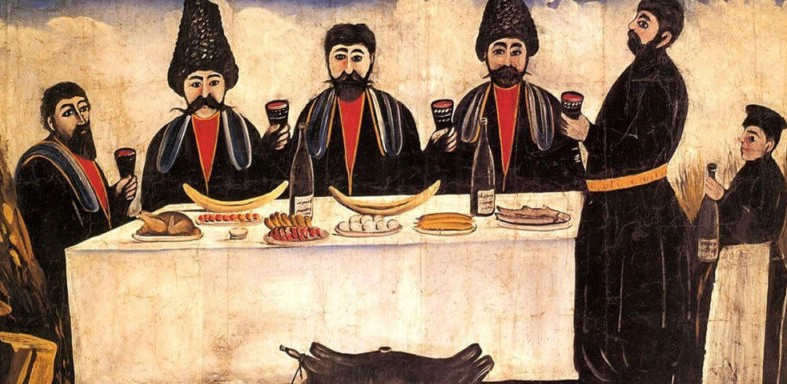
In Georgia, the table is far more than a place to eat—it’s a sacred space where friendship, respect, and heartfelt emotions unite people. Georgians believe that sharing food is a way of sharing life itself, and every feast, or “supra,” becomes a celebration of humanity. The heart of this tradition is the “tamada,” the toastmaster, who is not only the host but the soul of the gathering. With eloquence and wisdom, the tamada guides the flow of conversation, raises toasts filled with poetry, humor, and deep meaning, and ensures that every guest feels valued. The table is a reflection of Georgian generosity—filled with homemade wine, delicious dishes, and open hearts. Each toast tells a story—of love, ancestors, friendship, and the beauty of living in the moment. It’s more than etiquette; it’s philosophy—a reminder that words, like wine, should be shared with sincerity and joy.
For Georgians, hospitality is a sacred duty, and being a good host is an art form passed down through generations. The tamada speaks not just to entertain but to unite everyone around the table, creating a harmony between laughter and emotion. Guests are encouraged to respond with their own words, turning the meal into a living dialogue of stories and feelings. The rhythm of toasting, eating, and laughing forms a melody that lingers long after the plates are empty. The Georgian “philosophy of the table” teaches us that a meal is not about what’s on the table, but who’s around it. It’s about gratitude, connection, and the magic of spoken words that bind people together. In Georgia, the feast is life itself—a poetic blend of food, friendship, and the timeless art of being human.






 Deutsch
Deutsch
 русский
русский
